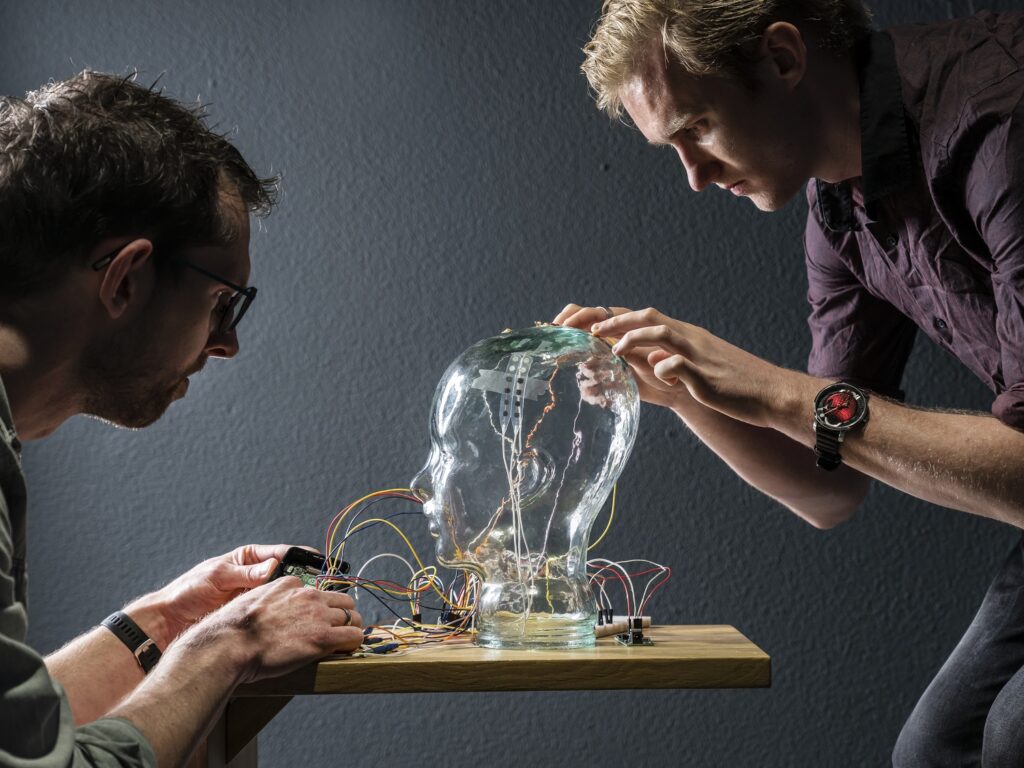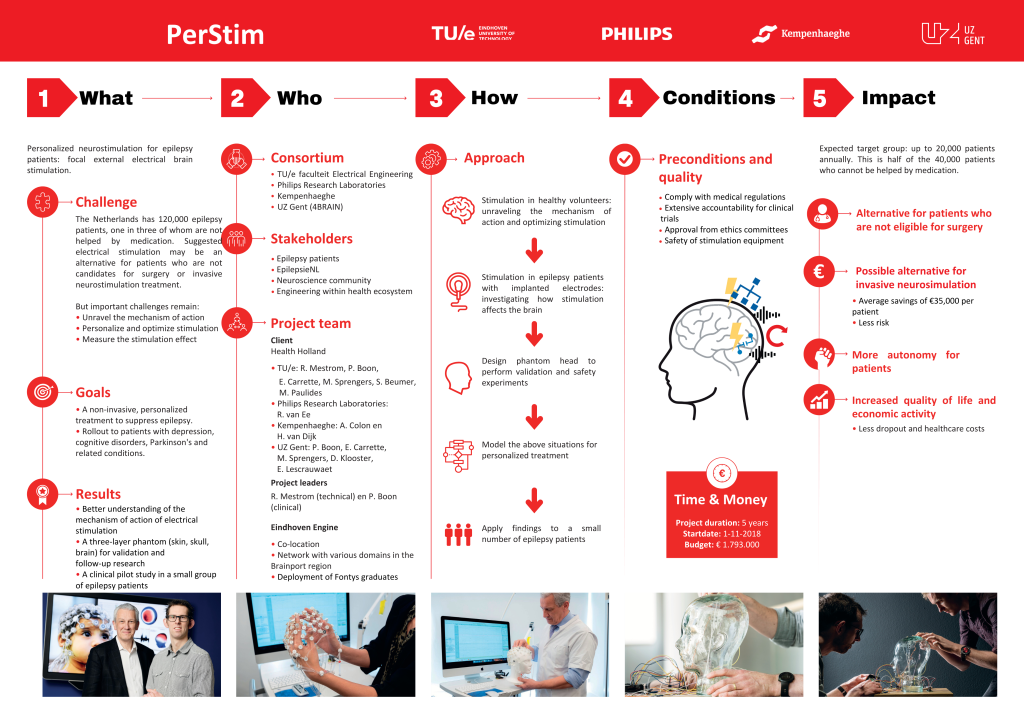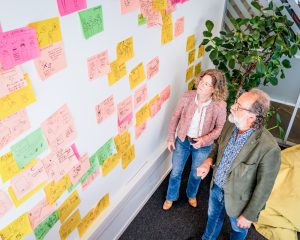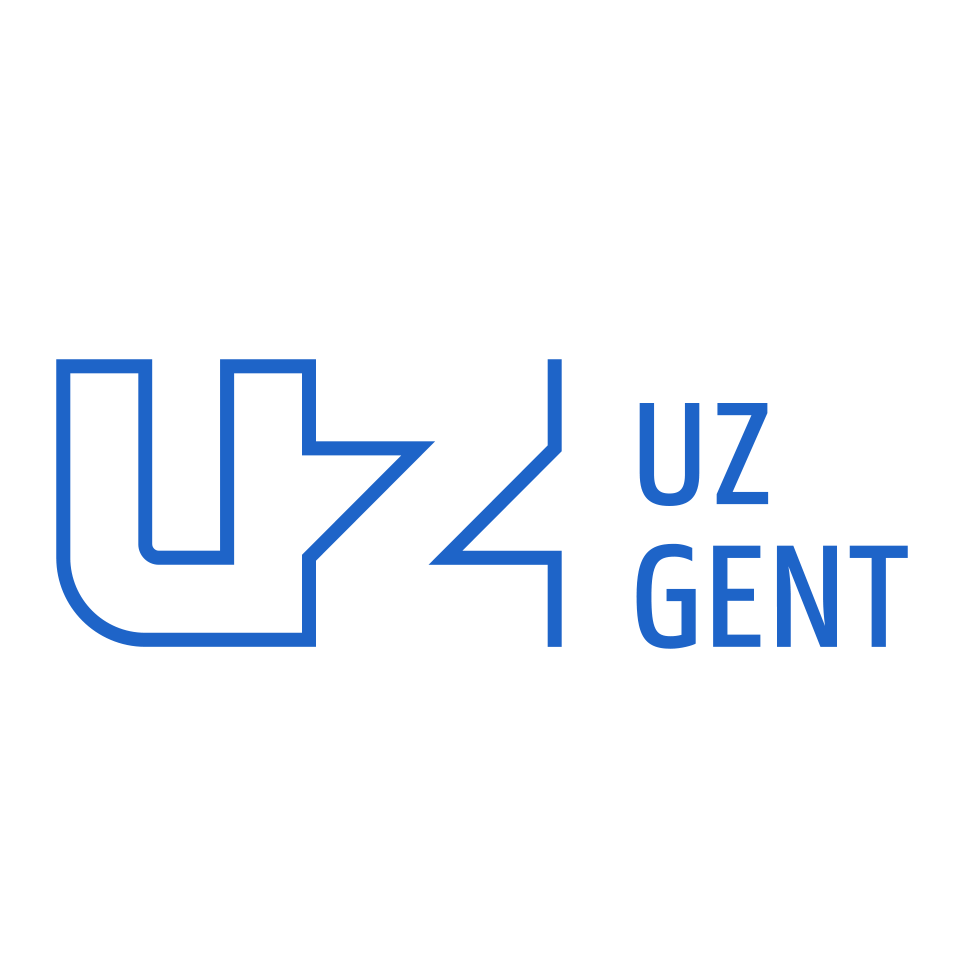
A non-invasive approach to treatment
Using EEG- and MR-imaging based transcranial electrical stimulation, the Eindhoven Engine project PerStim (Personalized neurostimulation) investigates how treatments for patients with refractory focal epilepsy and prevalent co-morbid disorders can be personalized effectively. Via transcutaneous direct/alternating current stimulation (tDCS/tACS), the overall aim is to develop personalized, non-invasive neurostimulation protocols to provide (non-)refractory epilepsy patients with a better quality of life. This non-invasive approach to treatment is a method whereby an operation is not needed and treatment outside the body, as it were, is made possible.

Tight technical-clinical cooperation
To realize these ambitions, TU/e has teamed up with Philips Electronics Nederland B.V. and Kempenhaeghe, the Academic Center for Epileptology. UZ Ghent is also involved through the part-time neuromodulation chair of Professor Paul Boon. PPP Allowance co-funding has been made available to Epilepsiefonds by Health~Holland’s Top Sector Life Sciences & Health in order to stimulate public-private partnerships. Project partner meetings take place approximately once per month, with Fontys and TU/e student projects expected to be held in Eindhoven Engine’s building Disruptor. Such close collaboration and the integration of their results in clinical trials will allow for direct testing of PerStim’s neurostimulation hypothesis.
First clinical study
With the support of Eindhoven Engine, PerStim successfully completed the first clinical study and developed a suitable skull model to commence the second clinical study. The project also integrated two Fontys students into the team, whose contributions will be included in a PhD thesis. Additionally, a spin-off project was launched under PerStim to extend the non-invasive neurostimulation approach to transcranial focused ultrasound stimulation. This initiative was further bolstered by recruiting an additional postdoc, in collaboration with the Donders Institute in Nijmegen.
Videos
In the Netherlands one third of the epilepsy patients (100.000+) keep having seizures; even after trying several medicines. The next treatment will be surgery. But there is a promising alternative treatment: neurostimulation.
Rob Mestrom – Project Leader
In this project PerStim Rob Mestrom and his team do research in personalizing neurostimulation for epileptic patients. He does this with a tight technical clinical cooperation with partners TU/e, Philips Electronics, Kempenhaeghe, UZ Ghent, and Epilepsiefonds.
Steven Beumer – PhD candidate
Steven Beumer uses brain images and brain recordings to try to optimize stimulation protocol for patients. Together with Fontys graduation students, they are working on artificially skull that mimics the real skull and its electrical properties.
Infographic






